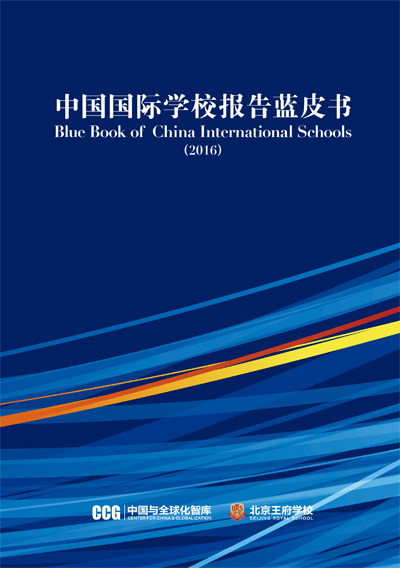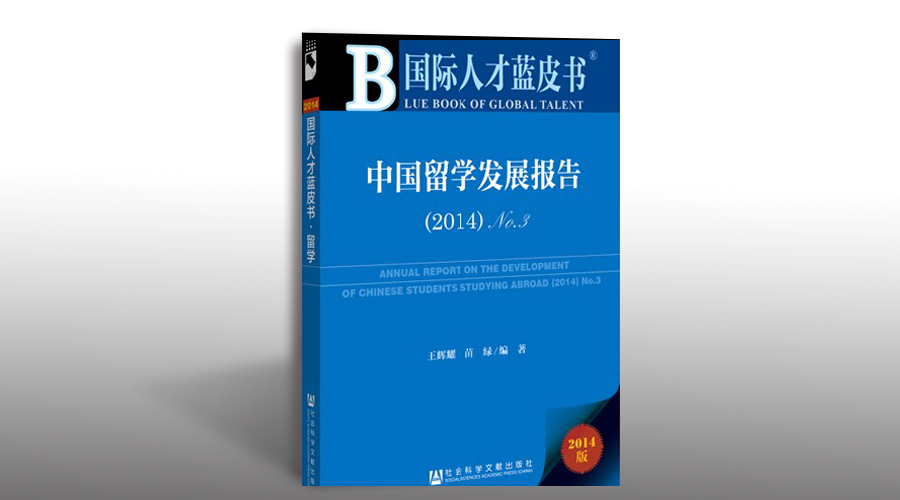CCG Bluebook Report Calls to Improve Education Quality of Chinese International Schools
June 05 , 2016
On Nov. 26, the Center for China and Globalization released the 2016 Bluebook Report on Chinese International Schools at the 1st International Education Summit Forum, the first one of the series. The report, as a joint effort with Beijing Royal School, is based on 1,322 copies of survey collected from 309 Beijing international schools. It draws the landscape of Chinese international schools and reveals the current status of their students. Moreover, the report provides a guidance on the future development of international schools in China.

The report was published, as CCG Secretary General Miao Lu said, at a time when more and more Chinese families prefer to send their children to international schools to prepare them for studying abroad.
According to the survey result, among 309 international schools polled, 158 only, or more than half of the total, recruit the students with Chinese citizenship due to policy restriction, and 105 enroll both Chinese and foreign students. The remaining 46 schools only allow in foreign students.
The survey also finds that nearly half of the international schools polled are privately-owned. Since 2010, the number of private international schools has been increasing steadily. However, the report highlights the importance to improve their quality. Beijing Royal School, as one of the leading private international schools, has set a good example, working with Harvard and other world-known universities to improve its faculty and adopting the curriculum system that integrates Chinese and international characteristics.
Regarding the demography of international school students, the survey finds that male accounts for 56.4% of the total. Most of the students are aged between 10 and 18. The research also extends to the parents. Among all the parents surveyed, 89.4% of them have never studied or lived abroad. In terms of the major factors that determine students’ preference for studying abroad, self-judgement (70.7%) is ranked the No.1, followed by parents’ influence (53.3%), social opinion (30.9%), influence of classmates and teachers (15.9%), media influence (5.8%) and others (4.2%).
When selecting a destination for study abroad, the primary consideration of international school students are the ranking positions of the school and the academic department, followed by geographic location and career prospect. In comparison to those factors, they care less about tuition fee and scholarship. The United States remains the No.1 destination, preferred by 61.3% of the students. UK, Canada, and Australia are ranked among the top choices. With respect to career development, 27.3% of the students are inclined to return to China and start their own business. 19.6% of them plan to look for job opportunities back in China. However, more than 25% of them have no plan for the future.
The report identifies a series of problems and challenges facing the Chinese international schools. For one, most private international schools that are allowed to issue internationally-acknowledged diploma are usually Sino-foreign joint venture, making it hard for Chinese or foreign governments to supervise them. Also, there lacks an established system to evaluation and accredit foreign teachers in the international schools. In addition, some international schools are not fully aware of cultural differences and have not set up an education ecosystem that integrates school, student and their family.
To address those challenges, the report suggests to improve government regulation and services for under-aged students studying abroad to build them a safety net and safeguard national image. The international schools, on the other hand, should leverage their connections and partnership at home and abroad to improve student services, for example, maintaining communications channels with them after they go abroad to better understand their experience and requirement.






